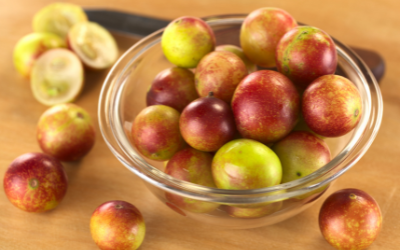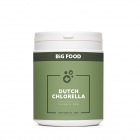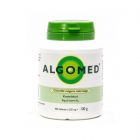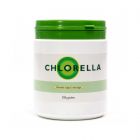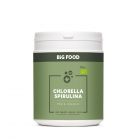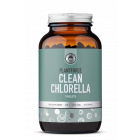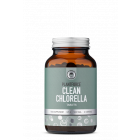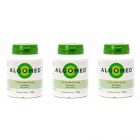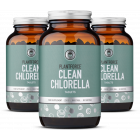Chlorella: The Hottest Superfood
- By Bea Recuerdo (BSc)
- 12 Jun 2021
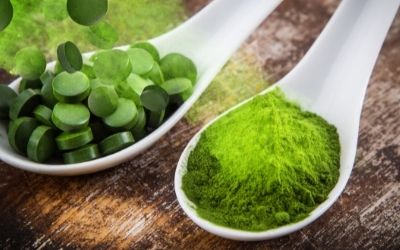
Chlorella is an algal "superfood" that contains about 50-60% protein and essential vitamins and minerals, chlorophyll, and carotenoids (e.g., lutein). These algae are widely ingested as a table or powder supplement and found in most supplement stores (Source: Pura Chlorella).
But have you ever wondered how and why Chlorella was considered a "superfood'? You might have even asked yourself if it truly is a superfood. Well, let's find out through this blog. 
So, what is "Superfood"?
Merriam-Webster Dictionary defines superfoods are "a food rich in compounds such as antioxidants, fiber, or fatty acids, that can benefit a person's health," Examples were salmon, broccoli, and blueberries.
Originally, the term "superfoods" started during World War I as part of a food marketing strategy for bananas. During this time, a fruit company advertised the practicality of including bananas in a person's diet as it was affordable, nutritious, could be bought anywhere and is good to eat whether uncooked or cooked (Source: HSPH).
So how was Chlorella seen as a superfood?
Chlorella is a food that was initially thought to be a food alternative to meet the population's demands due to its high nutritional profile and has been awarded the superfood title.
The rise of Chlorella in the market
It quickly became one of the most popular supplements and was known more than spirulina due to its rich and broad nutritional profile. However, it is essential to remember that spirulina is produced in various ways, each of which has a considerable impact on the nutritional content of the end product.
What does Chlorella do for your body?
Chlorella's beneficial components can possibly help the body maintain its health. Here are some of the nutrients that Chlorella can offer you:
Chlorophyll
Chlorella is an abundant source of a pigment called chlorophyll. Chlorophyll is one of the several antioxidant chemicals in algae (Source: Pura Chlorella).
This pigment is found in all plants and is essential for photosynthesis to produce nutrition. While it cannot be used for the same purposes in humans, chlorophyll may aid in toxic detoxifying compounds, skin restoration, blood sugar regulation, and oxygen supply (Source: PharmaJournal).
 Essential vitamins
Essential vitamins
Chlorella contains a handful of Vitamins such as Vitamin A, Vitamin B1 (Thiamin), B2 (Riboflavin), B3 (Niacin), B5 (pantothenic acid), B6, E, and vitamin K (Source: MDPI).
One of the very few plant-based sources of Vitamin B12...
Only a few plant foods include a bioactive source of vitamin B12, and Chlorella is one of them (Source: NCBI). This vitamin, also known as cobalamin, is mainly obtained from animal products, including meat and dairy. It is necessary for neuron function, energy production, and the manufacture of blood cells and DNA.
Essential minerals
Minerals are vital nutrients we need in small amounts, yet our bodies would not operate. Chlorella is a good source of magnesium, calcium, zinc, iron, potassium, phosphorus, and manganese, among other minerals (Source: Pura Chlorella).
Complete protein
Chlorella has a 50-60% protein content, and a 25g serving will provide you with close to 15 grams! In fact, because it includes all 11 essential amino acids, including leucine, the algal superfood is regarded as a complete protein. (Source: NCBI), that we cannot produce ourselves (Source: NCBI).
Remember: It shouldn't be your only source of protein...
Chlorella is frequently used to enhance vegetarian and vegan diets because of its complete protein content.
But it does not act as a natural protein shake because you drink it in tiny dosages. However, it may help add up to your protein requirement.
Does Chlorella help the immune system?
Chlorella has also been studied to help produce T-Cells and NK fighting cells. In preliminary trials, Chlorella has demonstrated its capacity to boost antibody production. (Source: NCBI). Chlorella supplements may also help athletes lower the risk and severity of infection. (Source: Springer).
Not only that but...
Chlorella has a broad spectrum of phytonutrients, which are powerful plant nutrients. These are well-known for their antioxidant properties and ability to cleanse and neutralize toxic compounds that might build up in the body. (Source: NCBI).
In fact, a recent study found that supplementing smokers with Chlorella significantly raised antioxidant levels in their blood. (Source: NCBI). Carotenoids are the most frequent type of antioxidative nutrients.
The algal superfood contains lutein, beta-carotene, and zeaxanthin, all-important carotenoids.
So can Chlorella be considered as a "superfood"?
 With its rich and diverse nutritional profile, Chlorella can be considered a "Superfood" in its own way. But be reminded that taking Chlorella supplements in your diet does not guarantee a healthy body. Focusing on one "superfood" does not assure you anything.
With its rich and diverse nutritional profile, Chlorella can be considered a "Superfood" in its own way. But be reminded that taking Chlorella supplements in your diet does not guarantee a healthy body. Focusing on one "superfood" does not assure you anything.
Instead, assess whether you need it in your diet and if yes, don't forget to still eat a balanced and varied diet.
So, who should consider a chlorella supplement?
In all honestly, we are not in the business of prescribing or recommending products to individual people, even though we are a supplement company. Many companies will do so, and it is plainly a business decision.
But what you can consider is that...
- Chlorella is unique in that it is entirely natural and does not contain any added substances.
- It works well as an add-on in smoothies, vegetable soups, and post-workout shakes.
- It's high in electrolytes and antioxidants, which help with fluid balance and recovery.






